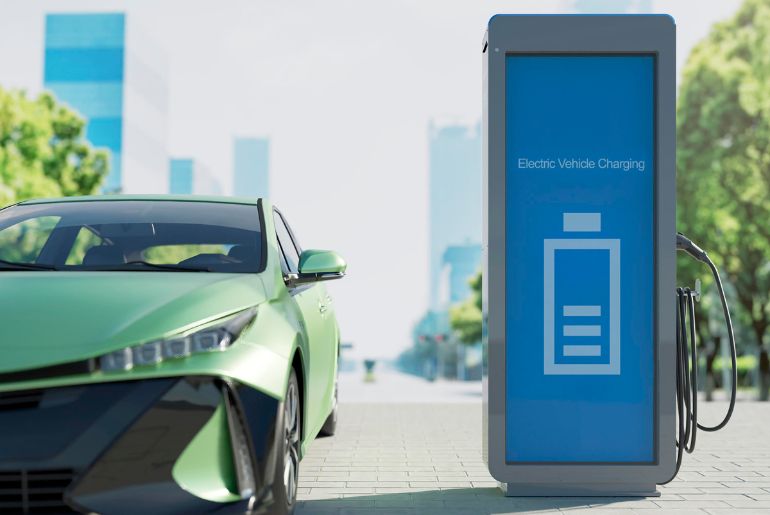According to several insiders who attended trade discussions over the past two days, Japan is planning to invest between $100 and $400 million (₹860-3,500 crore) in India’s electric vehicle, battery, and recycling industries in a significant geopolitical and economic move.
The action is a component of Tokyo’s plan to break China’s monopoly on global supply chains for rare earth magnets, lithium-ion batteries, and vital minerals—all of which are vital components of the global clean-tech and electric vehicle revolution.
According to those in attendance, Japanese trade and investment organisations are actively looking for Indian partners for projects including the production of EVs, cells, mineral processing, and recycling. A few Japanese private equity players were present, and funding arrangements were also considered.
By supporting joint ventures, knowledge transfers, and new processing facilities, the anticipated cash infusion might establish India as a key participant in Asia’s alternative supply chain matrix. Additionally, strategic investments are being investigated.
The “abrupt constriction and future reliability of key supply chains, specifically for critical minerals” are “deeply concerning,” according to a recent joint statement from the Quad.
For example, during a discussion, one of the Japanese businesses indicated that they would be open to collaborating on recycling catalytic converters, which clean exhaust fumes from internal combustion engine automobiles. This would allow them to obtain platinum and palladium. Platinum is utilised in hydrogen fuel cells and is widely employed in electric vehicles. One of the Indian companies there attested to having the necessary technological access to proceed with the same.
In the last 48 hours, India’s largest conglomerates, EV manufacturers, battery companies, and recyclers have participated in a flurry of high-level, private meetings and conferences with senior Japanese government officials, top executives from major battery manufacturers, automakers, and even PE firms (including subsidiaries of these auto-majors). Almost 70 businesses from the two Asian countries have taken part.
Key line ministry representatives from India and ARCI, the International Advanced Research Centre for Powder Metallurgy and New Materials, were also in attendance at these sessions, which were held at the Japanese Embassy office.
Among the well-known Indian brands in attendance were manufacturers of batteries, such as Attero and Lohum, as well as Tata, Honda, and Maruti Suzuki. Conglomerates such as Vedanta were among them, as was Tata Capital. It was also planned for Japanese officials to tour Lohum’s Uttar Pradesh factory.
Among the companies from Japan were Mitsubishi, Sumitomo, Daikin Chemical Southeast Asia, Hanwa, and members of the Battery Association for Supply Chain (BASC), a Japanese industry association.
“There are a lot of opportunities for India and Japan to work together on critical minerals and rare earth magnets because of the current geopolitics,” Nitin Gupta, CEO and co-founder of Attero, told BusinessLine.
“The Ministry of Finance-Japan, METI (Ministry of Economy, Trade and Industry), and JETRO (Japan External Trade Organisation) held a symposium at the Japanese Embassy on the topic of batteries and the ecosystem of vital minerals. Maruti Suzuki also took part,” according to Rahul Bharti, the company’s senior executive officer for corporate affairs.

